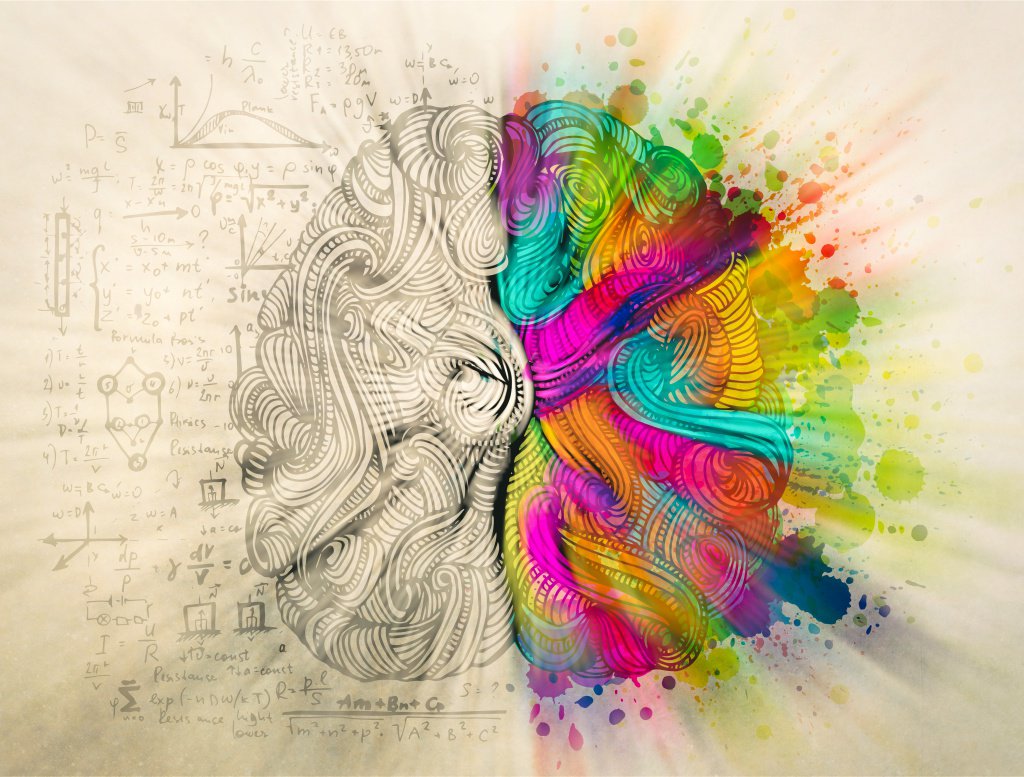Are Distraction and Creativity Linked?

“Having your head in the clouds and flying… where the windows are always open,” are the lyrics to a beautiful song by Ismael Serrano. Have you ever been told that you had your head in the clouds and didn’t have your feet on the ground? Then one of your skills may be creativity.
People who do not pay attention or wander in their imagination are usually labeled as unproductive, or unintelligent, and sometimes told they won’t succeed.
From the time we are children we are required to be focused on what our teachers and our parents say. When we grow up, we punish ourselves if we spend more than five minutes thinking about the future or our dreams.
But did you know that some of the greatest artists and scientists in history had “problems” concentrating? We are talking about Pablo Picasso, Claude Monet, Charles Darwin and Albert Einstein, no less. Distraction and creativity apparently go together.
Harvard University studies concluded that having more than one idea hovering in your head at a time helps us understand certain phenomena more easily and quickly. The constant ebb and flow of information in our minds encourages creativity. If you frequently have lots of thoughts, you probably have the ability to solve problems more efficiently.

“I get distracted by everything”
It may seem like the confession of a person who has attended therapy or who is being treated to stop an addiction.
Relatively speaking, we tend to think that distraction is a bad thing, but it is actually a message from our brain telling us to rest, to stop doing a job we do not like, or move on to something else.
Those with the problem (or ability) to distract themselves can, from now on, blame the neurons in the superior parietal lobe of the brain. Apparently, the more distraction there in our lives, the more gray matter we have.
Scientists still do not understand what happens in these cases: the theory so far has indicated that having more neurons could help us maintain focus and concentration, and not vice versa.
One hypothesis is that as the brain matures, some neurons and nerve connections get destroyed. This process helps in controlling attention. Following this idea, those that have more gray matter in their brain would be considered more distracted and “childish”.
It is also worth noting that we can have greater or lesser periods of distraction due to new projects, anxiety, stress, fatigue or nerves. However, when a person is distractible by nature this may a result of their brain makeup.

The unusual relationship between distraction and creativity
Although our culture and education always urge us to stay focused and concentrate, we cannot always achieve this. We are not robots or machines. Often creativity is coupled with distraction.
How can this be possible?
According to a study, people who cannot keep their attention on a task have more “leaks” in their sensory filters. These are the barriers that allow us to isolate ourselves from everything that happens around us when undertaking a particular task.
While it is true that these leaks affect our ability to concentrate, they also allow us to gather ideas and translate them into a project. This is key to being a creative person.
Distractions can come from everywhere and are often related to one of the senses, especially hearing, sight and smell.
Have you ever been told you have birds in your head or you’re on the moon? Congratulations then! It is a compliment and not a criticism, if you know how to use it.
“Having your head in the clouds and flying… where the windows are always open,” are the lyrics to a beautiful song by Ismael Serrano. Have you ever been told that you had your head in the clouds and didn’t have your feet on the ground? Then one of your skills may be creativity.
People who do not pay attention or wander in their imagination are usually labeled as unproductive, or unintelligent, and sometimes told they won’t succeed.
From the time we are children we are required to be focused on what our teachers and our parents say. When we grow up, we punish ourselves if we spend more than five minutes thinking about the future or our dreams.
But did you know that some of the greatest artists and scientists in history had “problems” concentrating? We are talking about Pablo Picasso, Claude Monet, Charles Darwin and Albert Einstein, no less. Distraction and creativity apparently go together.
Harvard University studies concluded that having more than one idea hovering in your head at a time helps us understand certain phenomena more easily and quickly. The constant ebb and flow of information in our minds encourages creativity. If you frequently have lots of thoughts, you probably have the ability to solve problems more efficiently.

“I get distracted by everything”
It may seem like the confession of a person who has attended therapy or who is being treated to stop an addiction.
Relatively speaking, we tend to think that distraction is a bad thing, but it is actually a message from our brain telling us to rest, to stop doing a job we do not like, or move on to something else.
Those with the problem (or ability) to distract themselves can, from now on, blame the neurons in the superior parietal lobe of the brain. Apparently, the more distraction there in our lives, the more gray matter we have.
Scientists still do not understand what happens in these cases: the theory so far has indicated that having more neurons could help us maintain focus and concentration, and not vice versa.
One hypothesis is that as the brain matures, some neurons and nerve connections get destroyed. This process helps in controlling attention. Following this idea, those that have more gray matter in their brain would be considered more distracted and “childish”.
It is also worth noting that we can have greater or lesser periods of distraction due to new projects, anxiety, stress, fatigue or nerves. However, when a person is distractible by nature this may a result of their brain makeup.

The unusual relationship between distraction and creativity
Although our culture and education always urge us to stay focused and concentrate, we cannot always achieve this. We are not robots or machines. Often creativity is coupled with distraction.
How can this be possible?
According to a study, people who cannot keep their attention on a task have more “leaks” in their sensory filters. These are the barriers that allow us to isolate ourselves from everything that happens around us when undertaking a particular task.
While it is true that these leaks affect our ability to concentrate, they also allow us to gather ideas and translate them into a project. This is key to being a creative person.
Distractions can come from everywhere and are often related to one of the senses, especially hearing, sight and smell.
Have you ever been told you have birds in your head or you’re on the moon? Congratulations then! It is a compliment and not a criticism, if you know how to use it.
This text is provided for informational purposes only and does not replace consultation with a professional. If in doubt, consult your specialist.







